Search titles
Displaying results 1 to 10 of 568.

Peter Marralwanga »
Painter of the Djang of western Arnhem Land
Authored by: Luke Taylor, Ivan Namirrkki
Publication date: 2026
Peter Marralwanga (1916–1987) was a leading figure in one of the great art practices of the world. He grew up in western Arnhem Land surrounded by artists painting in rock shelters and he learned to paint this way himself. The subjects of his paintings were the Djang who made his country and placed the spirits of people within it. Marralwanga’s story highlights the way bark painting became important as a way of evading assimilation policies rife within Northern Territory towns. Marralwanga established an outstation at Marrkolidjban where he could teach his children how to properly care for Ancestral lands, with part of this care involving a knowledge of how to paint. As a senior person who had travelled widely in his youth, and gained extensive ceremonial knowledge, Marralwanga was highly influential among a broad group of painters. Ivan Namirrkki, a painter of note and Peter Marralwanga’s son, has provided here his own account of his father’s life.
This book tracks Marralwanga’s life of learning about country and conveys the religious meaning of numerous major works, offering outsiders a richer understanding and appreciation of Arnhem Land art. It also shows the crucial role of individuals working for the community arts cooperative Maningrida Arts and Culture in facilitating Maralwanga’s rise to recognition as a major Australian and world artist.
Extensively illustrated, Peter Marralwanga: Painter of the Djang of western Arnhem Land, is a study of unique knowledge and beauty.
Coming soon
Notify me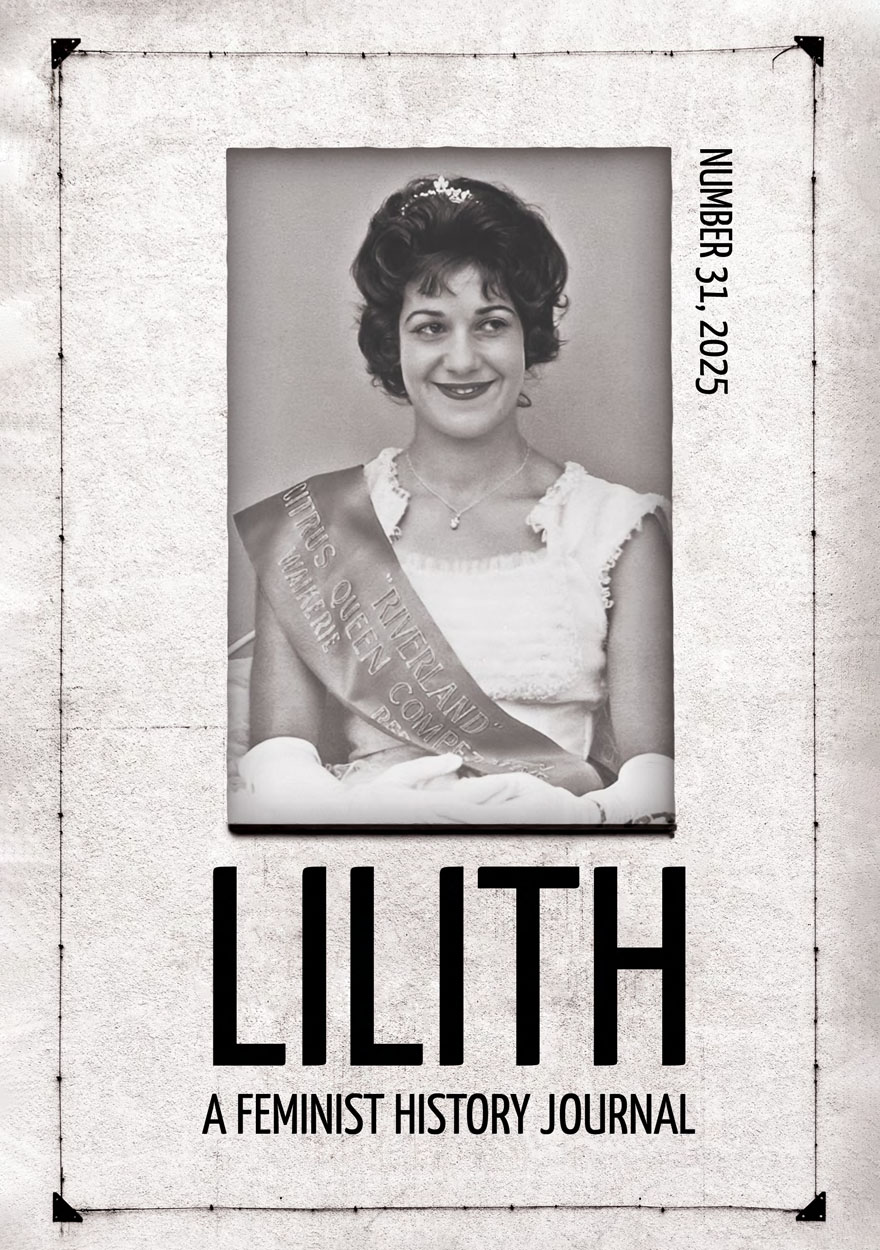
Lilith: A Feminist History Journal: Number 31 »
Publication date: 2026
The 2025 Lilith presents four research articles focused on gender-based issues and experiences in twentieth-century Australia and Britain. The Australian-focused articles examine Lillie Beirne’s maternal feminism and related campaigns for social credit in the 1930s and 1940s, and how the ‘Citrus Queen’ beauty pageants of South Australia’s Riverina region articulated ideals of Anglo-Australian womanhood while also creating space for migrant women to participate in civic life and assert regional belonging. The third of these articles offers a mother’s intimate oral history of the tensions between the expectations and realities of motherhood when her child struggles with mental health. Turning to 1960s Britain, one article examines arguments for legalising abortion and identifies that while women’s rights and circumstances were important considerations, arguments for maternal health were most successful in achieving abortion rights.
The issue also features ten book reviews spanning diverse thematic terrain. These include a memoir of the Australian Women's Liberation movement, Shauna Bostock's white and Aboriginal family history, and biographies of the nineteenth-century novelist Madame Dudevant (George Sand) and of Doris Punshon's life as a queer woman. Reviewed books also cover the role of women in the intellectual history of international relations, the Women's Weekly's influence on Australian food culture, sexism and harassment in the Westminster parliamentary system, Geraldine Fela's oral histories of HIV and AIDS nurses, the roles of sexuality and gender in remaking Australian citizenship, and trans-misogyny as a project of colonial violence. At a time when studies of gender and feminism are under siege, this issue testifies to the continuing vitality of feminist historical scholarship.
Coming soon
Notify me
Landslide »
The 2025 Australian Federal Election
Publication date: 2026
The 2025 Australian federal election saw an unexpected landslide victory for the Labor Party, the Liberal Party’s worst ever result and the continued rise of the non-major-party vote. In this book, Australia’s leading election analysts explore what contributed to this outcome, including the effectiveness of party and third-party campaigns, the changing demography of the electorate and external factors such as the ‘Trump effect’.
Baby boomers were outnumbered in 2025 by Gen Z and Millennials, who related to politics in a different way. Those pursuing their votes needed to do so through social media; influencers and podcasts became central to campaigning, as did humour appropriating popular culture with the help of AI. Increased cultural and linguistic diversity was also important, and there were new efforts to mobilise Muslim voters over the war in Gaza. Overshadowing it all was Trump. While populist themes seemed attractive at first, association with Trump quickly became a liability, and contributors here examine the difficulty of changing discourses mid-campaign.
This authoritative study is indispensable in understanding the new political landscape: polls and voting behaviour, misinformation, gender issues and competing leadership styles. Richly illustrated, the role of visual politics also receives close scrutiny.
Landslide is the nineteenth in the ANU Press federal election series. The series is sponsored by the Academy of the Social Sciences in Australia.
Coming soon
Notify me
Believing on Upside Down Country »
The Changing Faith-scape of Bendigo
Publication date: 2026
The city of Bendigo and surrounds, in central Victoria, Australia, is described today by its Traditional Owners, the Djaara people, as ‘upside down country’, because since 1851 the sacred earth has been rotated and removed by mining, changing its spiritual ‘faith-scape’. Since the arrival of settlers and sojourners of European and Chinese descent, relations between peoples in this region have been powerfully shaped not only by the quest for gold and subsequent bases of material wealth, but also by developments in this religious and spiritual faith-scape. In this innovative study, the authors examine a range of historically distinctive Bendigo customs, rituals, activities and events, from the famous Easter Fair, saved for posterity by the intervention of a Chinese community figure in the 1870s, and now led each year by Djaara people, to demonstrations associated with the Bendigo mosque controversy of 2014. They find that an understanding of spirituality and belief has often been a strong basis for connecting with and showing humanity towards others. Drawing on both oral sources and the objects and spaces of the material culture of religion and belief, the authors provide a fascinating elucidation of past and present meanings of faith, in and around Bendigo, as a lived dimension of experience.
Coming soon
Notify me
Australian Journal of Biography and History: No. 10, 2025 »
Publication date: December 2025
The articles in the Australian Journal of Biography and History No. 10 cover a diverse range of people, most of them little known in the annals of Australian history. Each lived on the edges of societal expectations and norms and so raise questions about Australian identity. These articles utilise biographical methods to illuminate lives full of risk, excitement, uncertainty and unconventionality.
Bianka Vidonja Balanzategui relates the complex and conflicted story of the writer John Naish (1923–1963). Born and raised in Wales, he came to North Queensland in his twenties and produced a significant body of literature on life in the sugar cane industry and the tropical north. Uncertainty and conflict also feature in James Cotton’s article on the two years (1921–23) Edward Selby Little spent as Australian trade commissioner in Shanghai. In a brief and unhappy but still portentous career, Little was in part a victim of the ad hoc and personal nature of the policy experiments of Prime Minister W. M. Hughes, while also a victim of the machinations of his countrymen. Georgina Fitzpatrick’s portrait of Eric Shimada (Shimada Masakazu) considers an individual whose bicultural identity brought a seemingly fluent transformation from Japanese soldier to interpreter for the Australian and British occupation forces and then the International Military Tribunal in Japan.
In his article ‘A Cat with Two Tales’, Andrew Marshall examines the conflict between the Australian-born cartoonist and entrepreneur Patrick Sullivan and the American illustrator Otto Messmer over who was the rightful creator of the popular cartoon character Felix the Cat. James McDonald uses collective biographical methods to discuss the way the largely forgotten racist term ‘King Billy’ was deployed in colonial Australia to diminish and mock the status of senior Aboriginal men. Similarly, Toby Raeburn, Paul Sanders and Kerry Doyle, in their article ‘Boorong of the Burramattagal’, elevate the status of a young woman from indentured servant to important cultural and linguistic intermediary. Kate White’s article ‘Creating the Mirage’ considers the private, along with the public, lives of the 1980s business couple Christopher and Pixie Skase. This private world is also the focus of Kay Whitehead and Belinda MacGill in their article on Annie Sharpley, a teacher at Naracoorte. While Sharpley’s career seems extraordinary in length, the selfless woman teacher in a country school is a typical personification of rural education in settler countries such as Australia.
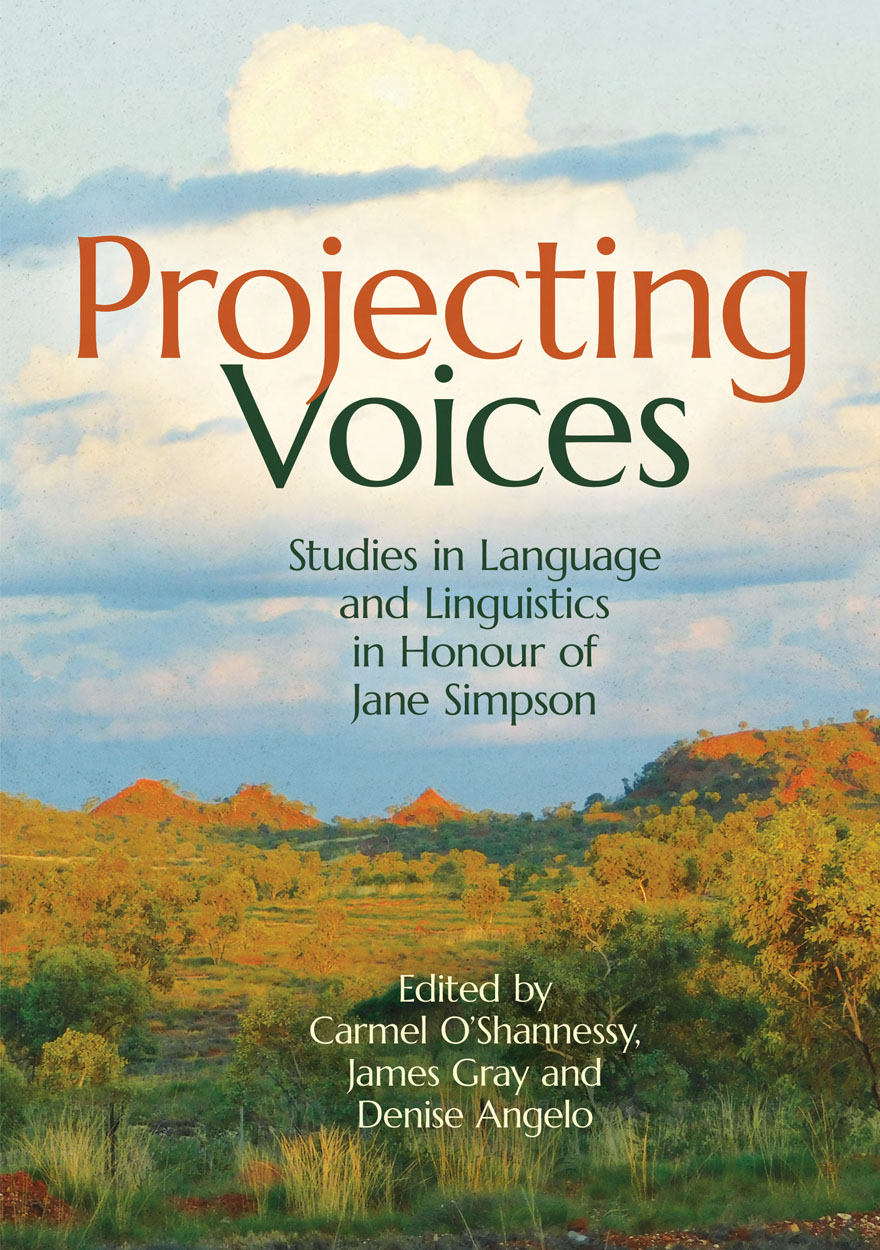
Projecting Voices »
Studies in Language and Linguistics in Honour of Jane Simpson
Publication date: December 2025
This volume provides cutting-edge research on a wide range of questions in linguistics research, mostly centred on Australian Indigenous languages. Written by world-leading experts, the chapters take a fresh look at current questions in each topic, inspired by the work of Australian linguist Jane Simpson.
The chapters have implications for linguistic theory in the areas of historical linguistics, morphosyntax, semantics, the lexicon, language acquisition and issues in languages in education, and renewal of endangered languages.
This volume is essential reading for students and experienced researchers alike, with interests in theoretical and applied linguistics, especially in topics and issues related to Australian Indigenous languages.
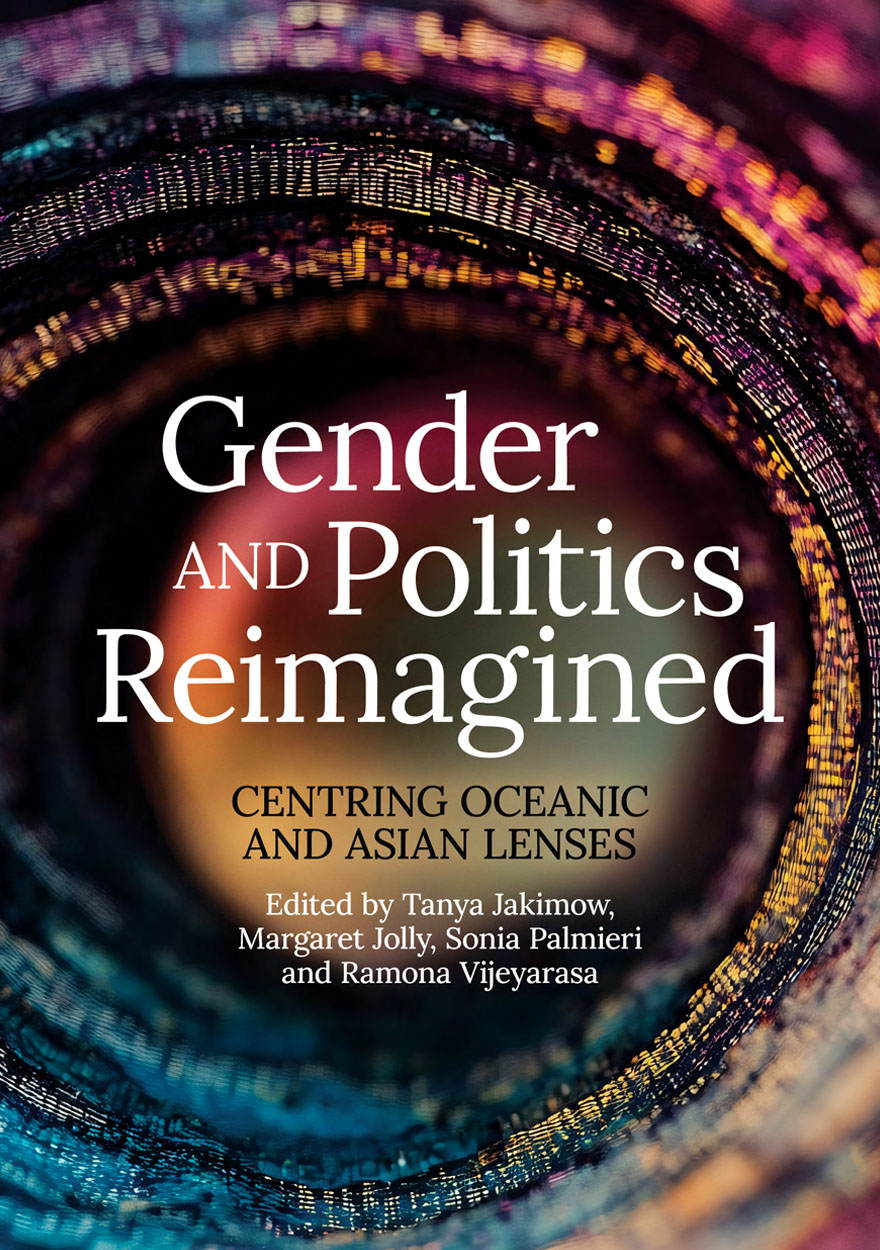
Gender and Politics Reimagined »
Centring Oceanic and Asian Lenses
Publication date: December 2025
This timely collection reflects a coming together of academics, gender and development practitioners and activists to reflect on the gendering of politics. By centring Asia and Oceania and traversing numerous disciplines, the volume disrupts the illusion of certainty and clarity as to what is known about gender and politics. Individual chapters present specific research projects, while providing epistemological, theoretical and methodological reflections on how knowledge is produced and by whom, challenging the existing canon. The contributions collectively demonstrate the possibilities for theorising from Asia and Oceania to address the lack of diversity in political representation and leadership on a global scale, in which gender, race, class, caste, (dis)ability and sexual identity are powerfully interconnected.
Arising out of the Gender and Cultural Diversity in Politics: Australia, Asia and the Pacific workshop held at The Australian National University in 2022, this collection underscores the importance of fostering scholarship and mentorship in the academy. The diversity of authorship encompasses differences in ethnicity, nationality, sexuality and career stage, with an emphasis on the inclusion of authors from various Oceanic and Asian countries. The volume promotes academic practice as integral to social change, and social action as a form of knowledge production. As such, Gender and Politics Reimagined is sure to be a cornerstone in future scholarly and activist discussions.
Format: Hardback
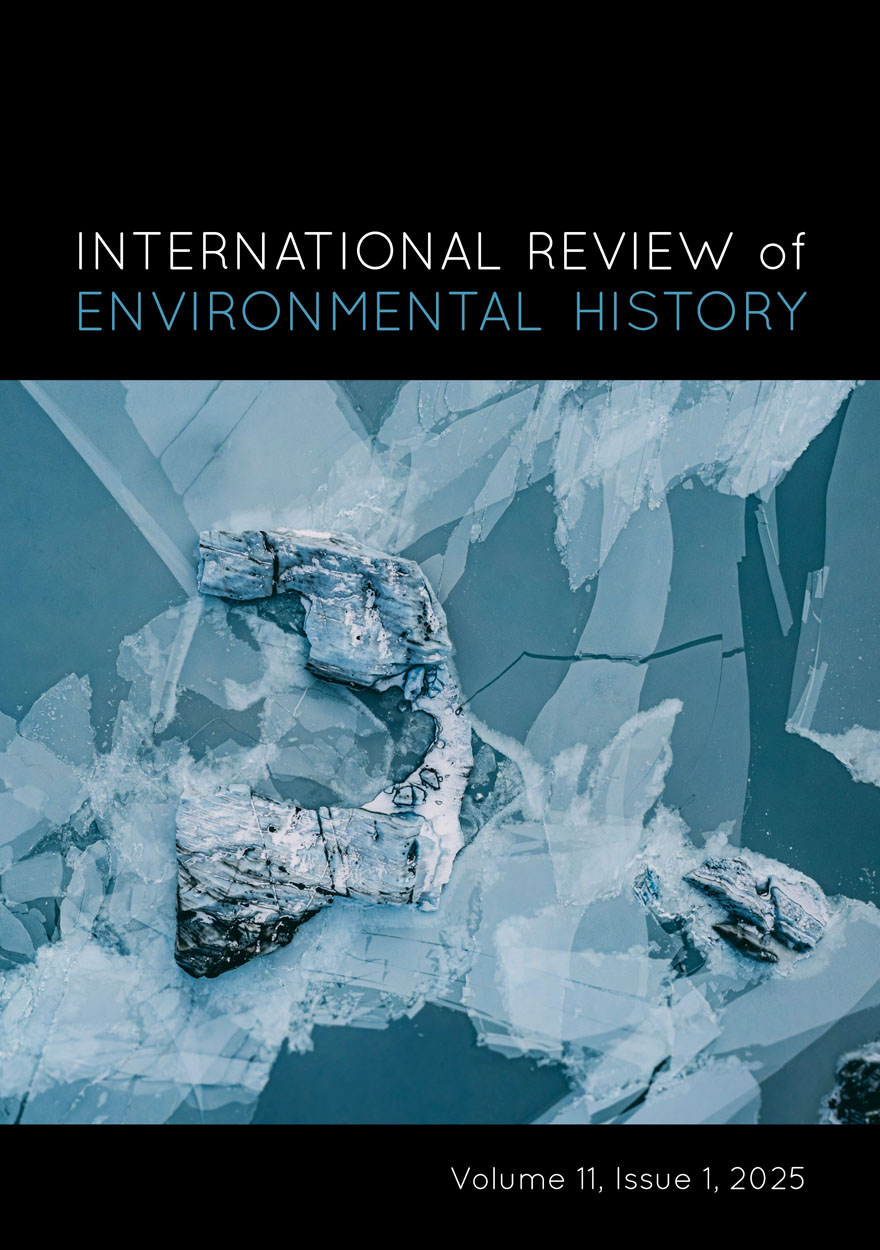
International Review of Environmental History: Volume 11, Issue 1, 2025 »
Edited by: James Beattie, Ruth Morgan
Publication date: November 2025
This latest issue of the International Review of Environmental History takes readers from the settler landscapes of nineteenth-century Aotearoa New Zealand to the post-1945 rise of herbicides in Northern Europe. Lingering in Aotearoa, readers will be immersed in geological debates about the causes of past glaciation and trace the early twentieth-century appeal of the Phoenix palm. This issue also features a personal reflection on the campaign to protect K’gari-Fraser Island in the mid-1970s and its lasting influence on Australian environmental law. Together, these contributions reveal the spread and influence of transnational ideas on local understandings of environmental change and conservation.

ANU Historical Journal II: Number 5 »
Publication date: 2025
Published amid rising student fees, shrinking university departments and increasing political scrutiny of research, this fifth issue of ANU Historical Journal II brings together eight peer-reviewed articles examining how histories of place, memory and violence are made and contested. Articles explore community collaboration in the Mount Ainslie Labyrinth, grassroots memorialisation of the Spanish Civil War in Canberra, Australian tourism to 1930s Stalinist Russia and the national legacy of Victor Hugo. Other contributions examine slave resistance in colonial Haiti, the political power of documentary film in shaping narratives of Guantanamo Bay, the Vietnam-era historiography of Australia’s role in the Boer War and scholarly memory of the Watergate scandal. Five book reviews round out the issue, engaging with recent publications in Australian, political and global history.
Coming soon
Notify me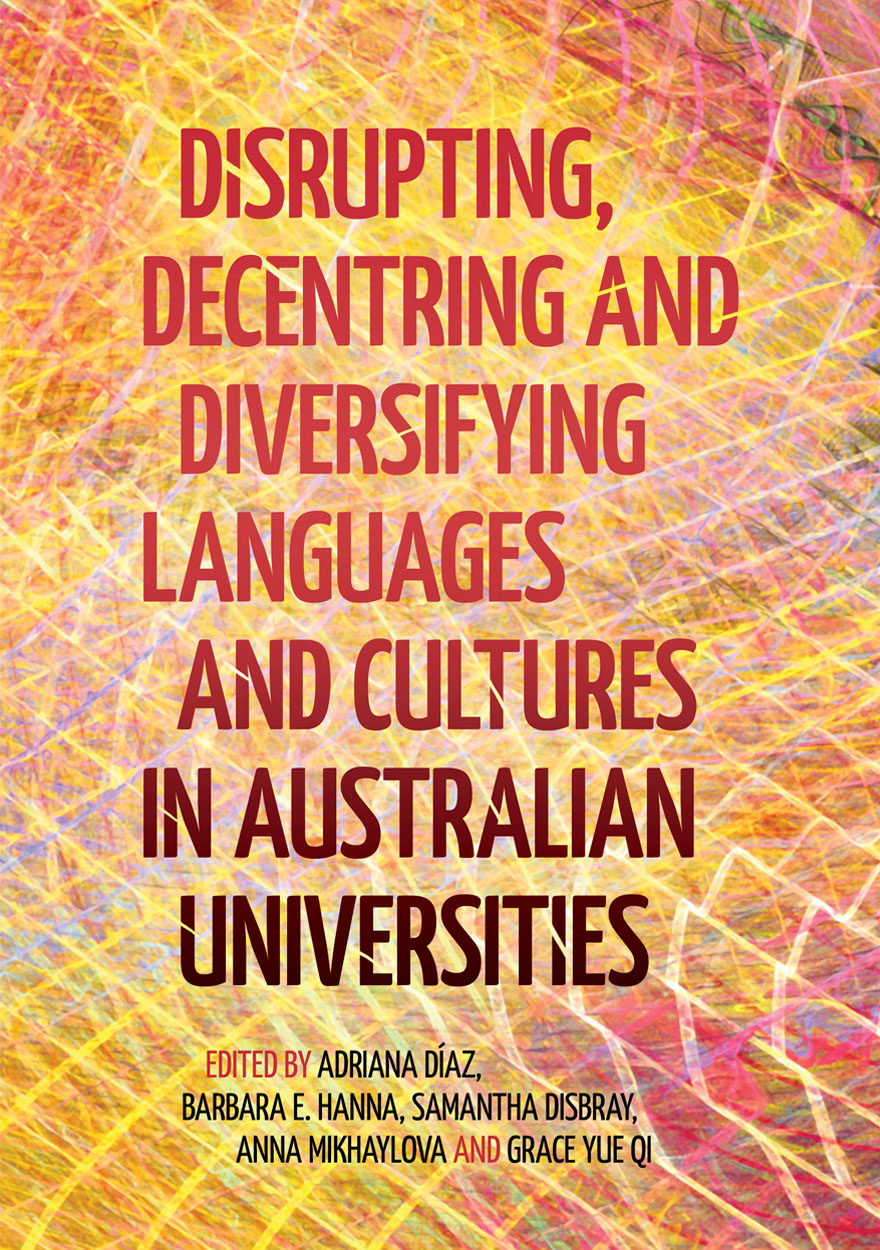
Disrupting, Decentring and Diversifying Languages and Cultures in Australian Universities »
Publication date: November 2025
How can languages and cultures in Australian higher education be disrupted, decentred and diversified? Contributors to this volume advance theoretical, critical (self-)reflections and position papers, pedagogical explorations of classroom practice as well as data-driven empirical investigations to challenge, resist and stretch how languages and cultures are both taught and imagined in research.
From metaphorical conceptualisations of knowledge production, discussions of virtual reality, and innovation and creativity viewed through the lens of Indigenous epistemologies, to language learning curricula designed to challenge heteronormativity and cisgenderism, and a reconceptualisation of the role of language educators as designers, each chapter emphasises the vital role of innovation as the driving force of positive disruption.
What emerges here is the resilience and adaptability demanded of languages and cultures researchers and educators as they navigate an ever-shifting educational landscape. Taken as a whole, this volume serves as a testament to these scholars’ collective capacity to adapt, evolve, embrace and actively drive change, fostering a more diverse, equitable and inclusive future for their field.



